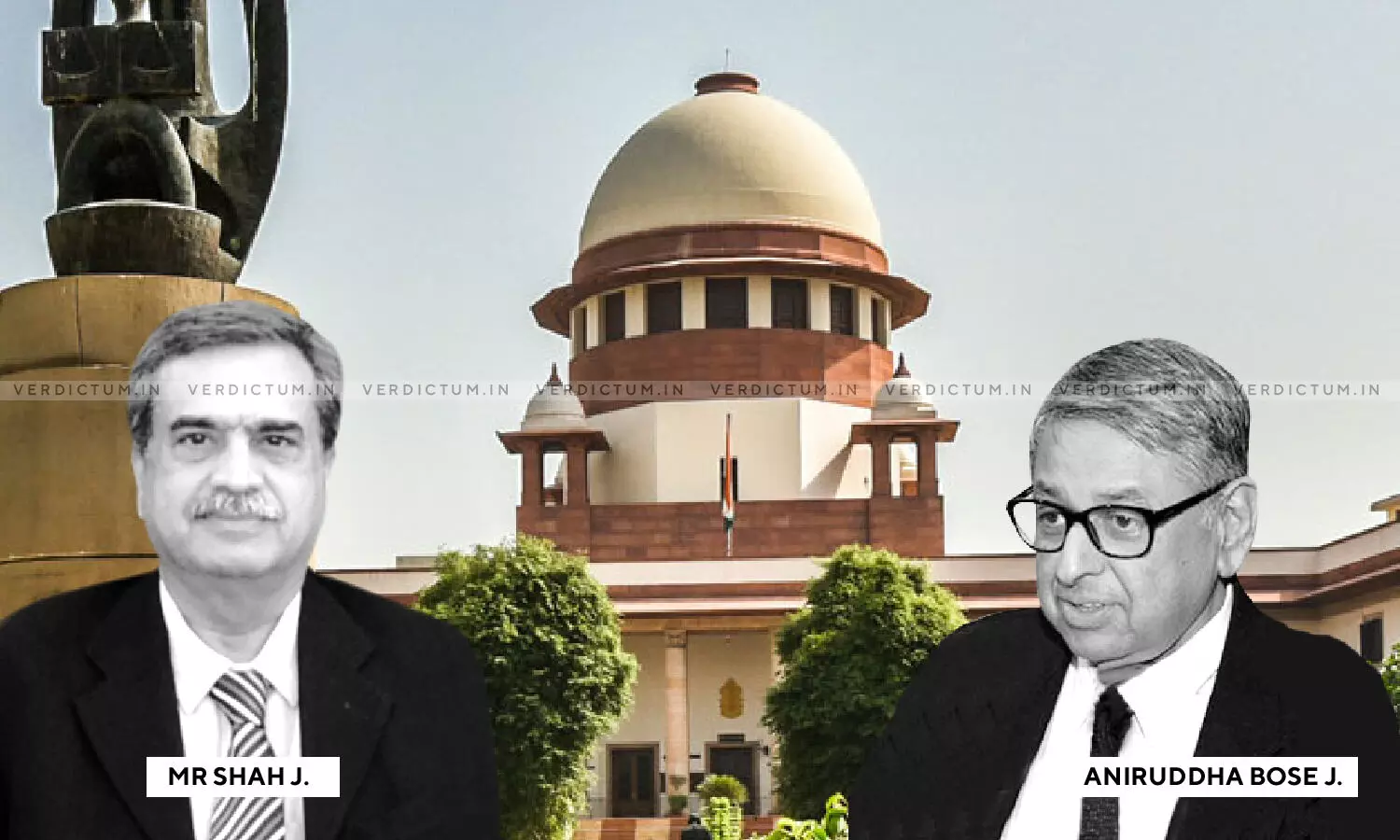
Making Submissions Again Which Earlier Were Not Accepted By Court Tantamount To Contempt: Supreme Court
 |
|While adjudicating over a contempt petition the Supreme Court observed that making repetitive submissions which have not been accepted earlier by Court is a wilful disobedience and tantamount to contempt.
"Repetitive submissions which have not been accepted earlier by court that itself is a wilful disobedience and tantamount to contempt and it shows the conduct on the part of the contemnors.", the Bench of Justice MR Shah and Justice Aniruddha Bose observed.
In this case, the petitioner- HSBC PI Holdings (Mauritius) Limited, had alleged that the respondents–alleged contemnors had committed contempt of court for wilful disobedience of orders passed by Supreme Court whereby the Court had directed the respondents-alleged contemnors to deposit and/or maintain USD 60 million in the Corporation Bank account.
Notably Earlier the Single Judge had directed the respondents– alleged contemnors to deposit the shortfall amount in their account with the Corporation Bank so as to maintain a balance of USD 60 million.
This order came to be modified by the Division Bench of the High Court and the alleged contemnors were directed to deposit an additional amount equivalent to USD 20 million in the Corporation Bank account, so that the total deposit in the said account is maintained at half the said figure of USD 60 million.
Later the Supreme Court restored the order passed by the Single Judge.
The petitioner served a legal notice upon the alleged contemnors – respondents and Avitel calling upon them to, interalia, deposit the shortfall amount in the Corporation Bank account to maintain a balance of USD 60 million. However the respondents failed to deposit and/or to maintain a balance of USD 60 million in their Corporation Bank account.
Contempt proceedings were filed against the respondents alleging wilful, intentional and deliberate disobedience of judgment and order passed by the Supreme Court.
The Supreme Court again by a further order directed the respondents to deposit the shortfall amount within a period of six weeks in the Corporation Bank account. However the respondents filed an application seeking exemption from payment of shortfall amount.
While seeking exemption, it was the case on behalf of the respondents despite their best efforts, they are helpless in complying with the directions issued by the Court for such reasons which are absolutely beyond their control and for want of adequate funds at this stage. However the Court rejected the aforesaid application. Despite this, the respondents failed to deposit the shortfall amount.
Senior Advocate Neeraj Kishan Kaul appeared for the petitioner-HSBC whereas Senior Advocate Mukul Rohatgi appeared for alleged contemnors.
Petitioners' Counsel inter alia submitted that the deliberate disobedience of orders of Supreme Court has rendered the respondents – alleged contemnors liable for suitable punishment under the provisions of the Contempt of Courts Act.
On the other hand Senior Advocate Mukul Rohatgi submitted that the present contempt petition was not maintainable on the grounds, that the petitioner was seeking to execute the order of the Single Judge, directing to deposit shortfall amount, which is executable before appropriate court/forum; and that the contempt proceedings cannot substitute the execution/enforcement proceedings (already being availed by the petitioner) and as such the present contempt proceedings are misconceived in law and facts.
He also submitted that the respondents do not have the wherewithal to deposit the shortfall amount despite their best intentions, unless they are permitted to sell/encumber their assets to generate further funds for depositing the shortfall amount in the Corporation Bank account.
On the contention that the order passed by the Single Judge is executable, the Court observed that the respondents had not complied with the order of the Single Judge as well as of the Supreme Court directing them to deposit the shortfall amount. The Court further observed that their application seeking exemption from payment was also dismissed.
Therefore the Court held that it shall not be open for the respondents to submit that the aforesaid order passed by the Single Judge is executable and that the present contempt proceedings may not be entertained.
The Court placed reliance on a catena of its decisions and accordingly overruled the objection on behalf of the respondents that as the order passed by the Single Judge of the High Court is executable and therefore, the present contempt proceedings may not be entertained.
The Court observed that the submission -"there is no wilful disobedience as they have no sufficient funds to deposit the shortfall amount" were already made in the application seeking exemption from payment of the said amount and were rejected already.
The Court held that the respondents cannot be permitted to make the same submissions which have not been accepted and/or rejected by this Court earlier.
The Court observed that sufficient opportunities were given to the respondents to deposit the shortfall amount and despite that they had failed to deposit the said amount.
"The respondents have rendered themselves liable for suitable punishment under the provisions of the Contempt of Courts Act for such deliberate and wilful disobedience.", the Court observed.
However the Court gave an additional opportunity to the respondents to deposit the shortfall amount.
"However, before we pass any further order of punishment/conviction, we still give an additional opportunity to the respondents to comply with order dated 06.05.2021 passed in the present petition as well as judgment and order dated 19.08.2020 passed by this Court in Civil Appeal No. 5158/2016 to deposit the shortfall amount so as to maintain a balance of USD 60 million in their Corporation Bank account within a period of four weeks from today.", the Court held before concluding.
Click here to read/download the Judgment